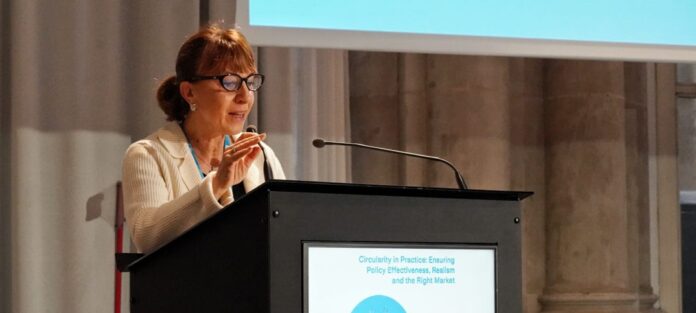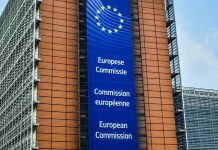On 24 November, the European waste management sector met in Milan for the conference “Circularity in practice: ensuring policy effectiveness, realism and the right market”, organised by A2A, Assoambiente and FEAD.
The event addressed how Europe can accelerate delivery of its circular and industrial objectives in the new political term. Over the past legislative cycle, the EU introduced ambitious circular economy measures, yet the absence of strong market signals, predictable demand and a coherent industrial policy has limited their overall impact.
With competitiveness now central to the political term, the newly adopted Clean Industrial Deal positions circularity as a key element of Europe’s growth strategy and underscores the need to reduce overdependence on third countries.
The discussions in Milan examined how to put circularity into practice in ways that are effective, realistic and aligned with market needs. Two key upcoming EU files expected to shape the sector’s work: the Circular Economy Act and the revision of the EU Emissions Trading System for waste incineration.
Mr Aurel Ciobanu-Dordea, Director for Competitive Circular Economy & Clean Industrial Policy at the European Commission, presented the Circular Economy Act, emphasizing: “We must improve the economic attractiveness of the circular economy. At the moment it is not yet valued properly in global markets. For this we need to improve the single market but also fit the circular economy in the broader strategic agenda. Companies and consumer must see both the price and the carbon benefits of recycled materials.”
Ms Mette Quinn, Head of Unit ETS (I): Policy Coordination, International Carbon Markets European Commission DG CLIMA, outlined the latest findings of the ETS impact assessment and its implications for circularity: “In our impact assessment, we are evaluating multiple options, including various waste management activities, while considering we already have today an uneven picture of how the sector is already included in the ETS. For each option, we need to assess the potential for emissions reductions, internal market effects, alignment with the waste hierarchy, risk of diversion to landfills and/or exports, environmental integrity, MRV robustness and abatement options. However, one thing is clear: if any option is included, complementary measures will be key.”

„Italy boasts a consolidated tradition in the field of circular economy: the limited availability of natural resources has, over time, promoted the spread of a culture oriented towards reuse, recycling, and recovery. A heritage that today represents an opportunity to enhance what we have, generate new supply chains, and strengthen the strategic autonomy and competitiveness of our country and Europe,“ said Roberto Tasca, President of A2A. „For companies to invest in new plants, research, and technologies, it is essential to have a stable, clear, and coherent regulatory framework. A2A is ready to contribute with responsibility and vision: we are a national leader in the environmental sector, and our Industrial Plan foresees, by 2035, 7 billion euros of investments dedicated to the circular economy — from waste management to the integrated water cycle, to the recovery of waste heat from industry or data centers to power our district heating networks. We trust that the future Circular Economy Act can guarantee greater regulatory stability, favoring the adoption of a long-term strategy for an essential sector, capable of supporting decarbonization, energy independence, and the growth of Europe.”
„Italy is a European leader in recycling performance, but at the same time remains hampered by its structural weaknesses and needs to transform this leadership into an industrial strategy capable of guiding the country towards greater independence from foreign imports of raw materials and energy and towards reducing emissions, in line with EU objectives. To do this, the circular economy can no longer be considered a mere environmental option, but must be a cornerstone of economic and industrial policies that benefit the competitiveness and sustainability of the production system,” said Chicco Testa, President of Assoambiente.
Claudia Mensi, President of FEAD, highlighted the need to approach circularity with practical realism: “Policymakers must understand the reality of our sector. Our work is complex. It involves technology, investment, infrastructure, logistics, markets, and above all, people,” she said. “For Europe to succeed in its circular economy goals, waste management companies must be supported and encouraged, not slowed down by rules that do not reflect the real world.”
A2A, Assoambiente and FEAD will continue working with EU institutions and national authorities to ensure that forthcoming policies deliver tangible progress on Europe’s circular economy.
Source: FEAD





